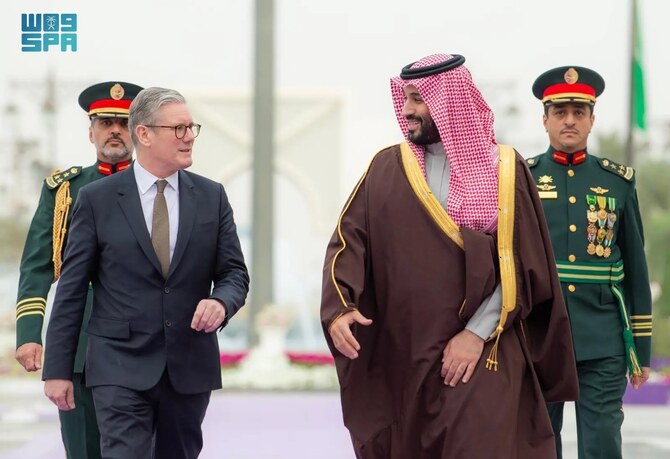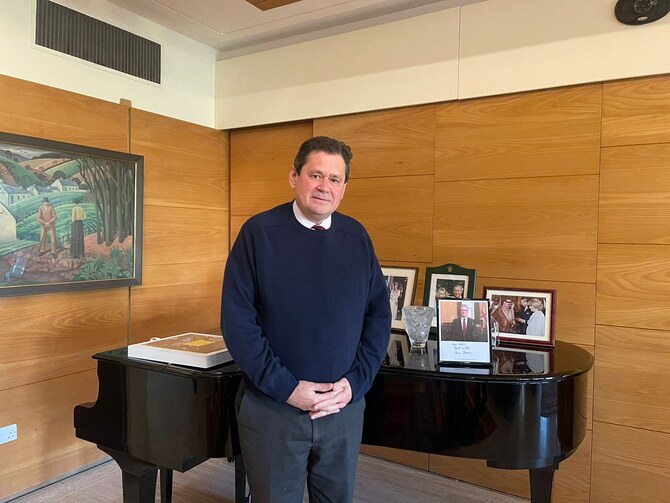LONDON: It was something of an accidental discovery, admits Volker Vahrenkamp with a smile.
“Sometimes, these things need a little luck.”
Vahrenkamp, a professor of geology at King Abdullah University of Science and Technology in Thuwal, on Saudi Arabia’s Red Sea coast, had set out with a team of colleagues to take a closer look at a coastal geological phenomenon they had spotted on satellite images.
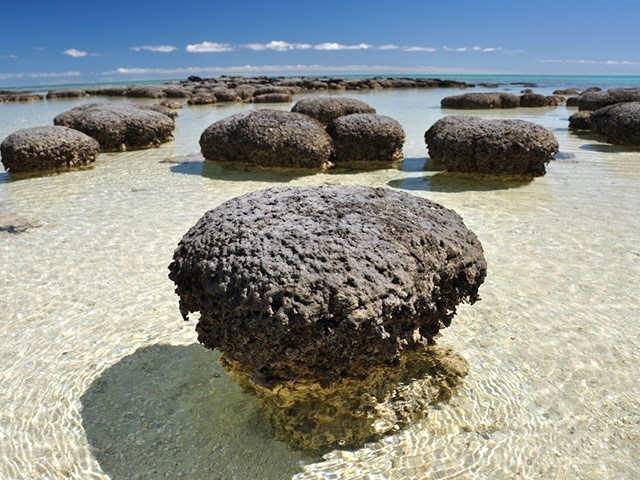
Stromatolites are layered rock-like structures created by tiny microbes, some of which trap sediment in their filaments. (UNSW Sydney/Brendan Burns)
The so-called teepee structures, a tent-shaped buckling of sedimentary deposits found in intertidal zones, are valuable indicators of environmental changes, ancient and modern.
The team was delighted to discover there were examples virtually on their doorstep — just 400 kilometers up the coast from KAUST, off the southern tip of Sheybarah Island, best known for Red Sea Global’s luxury tourism resort of the same name.
“There aren’t really many good examples of teepee structures, where people can study how they form,” Vahrenkamp told Arab News.
“Then we spotted this, and it’s the most spectacular example that I’m aware of.”

The satellite images had shown that there were two teepee fields in the island’s intertidal zone and, after a short boat trip across from the mainland on a converted fishing boat, “we landed on the island, examined one field, and then started walking across to the other.”
And then, as they crossed the foreshore between the two, “we literally stepped on these stromatolites.”
Stromatolites are layered rock-like structures created by tiny microbes, individually invisible to the naked eye, some of which trap sediment in their filaments.
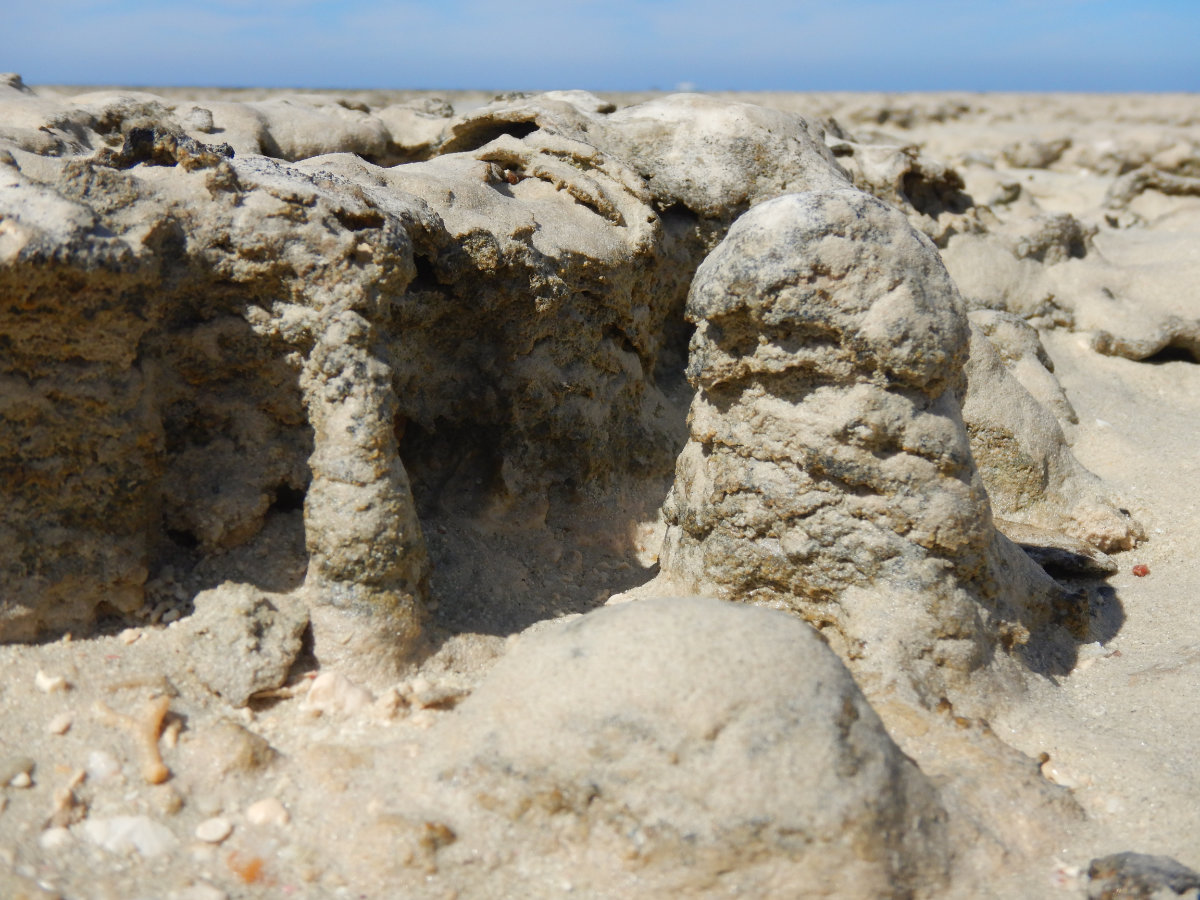
The stromatolites are built up in layers over years thanks to the actions of tiny microbes. (Photo by Elisa Garuglieri)
Living on rocks in the intertidal zone, they are covered and uncovered daily by the coming and going of the tides and, in a process known as biomineralization, slowly transform the dissolved minerals and sand grains they capture into a solid mass.
Human beings, and every other living thing on Earth that relies on oxygen to survive, owe their very existence to the tiny, so-called cyanobacteria that have been creating stromatolites for about 3.5 billion years.
Cyanobacteria were one of the first lifeforms on Earth, at a time when the planet’s atmosphere consisted mainly of carbon dioxide and methane. When they emerged about 3.5 billion years ago, they possessed a particular skill — the ability to generate energy from sunlight.
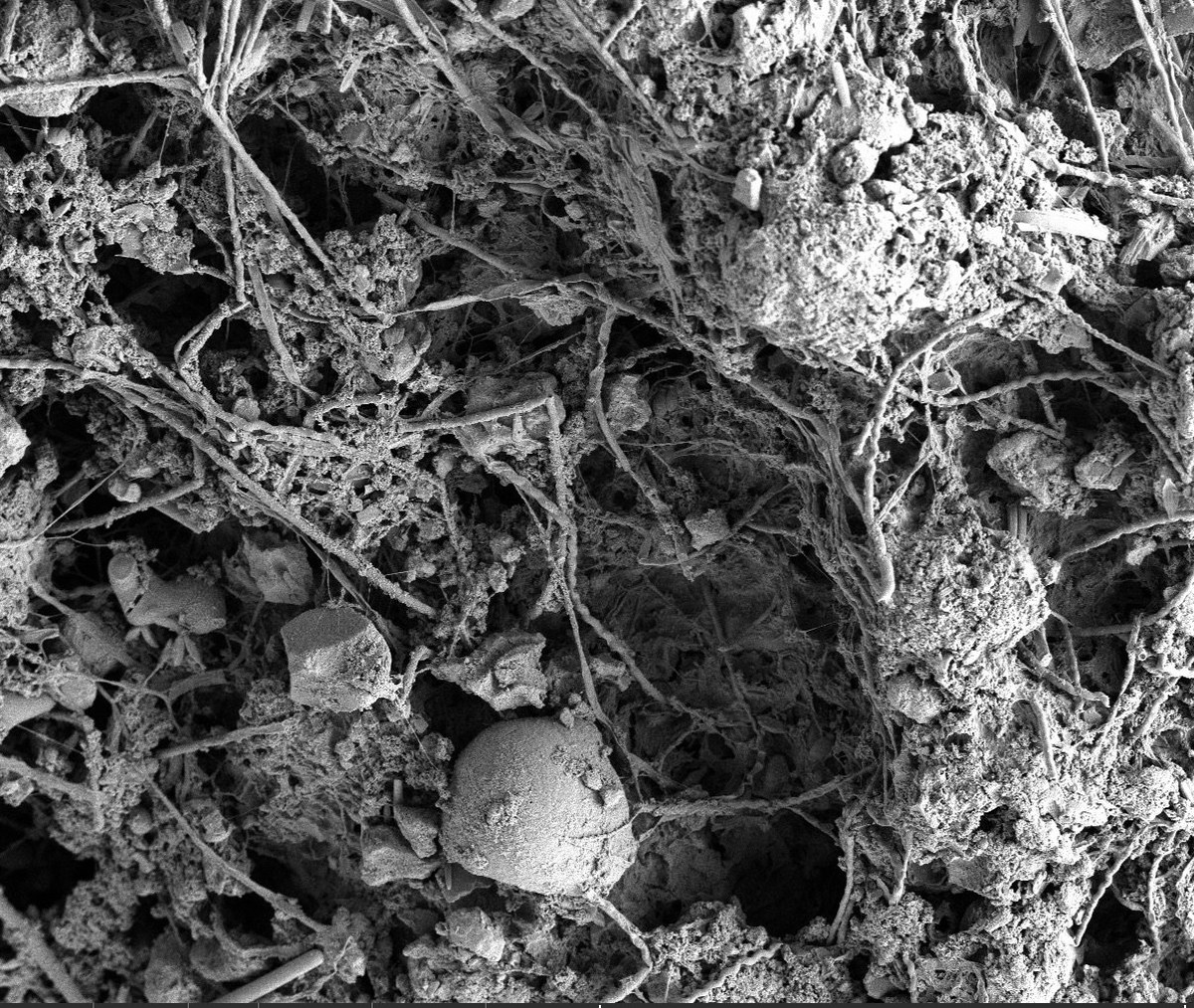
Seen magnified multiple times under a scanning electron microscope, in this section of a stromatolite measuring just 0.4 mm across the microbial filaments and the sediment they have trapped can clearly be seen. (Photo by Elisa Garuglieri)
This process, photosynthesis, had a crucial by-product — oxygen. Scientists now believe that the microscopic cyanobacteria were responsible for the biggest thing that ever happened on the planet — the Great Oxidation Event, which saw Earth’s atmosphere transformed and set the scene for the evolution of oxygen-dependent life as we now know it.
Most stromatolites today are merely fossils. As other life on Earth developed, they lost their foothold in the planet’s oceans to competitors, such as coral reefs.
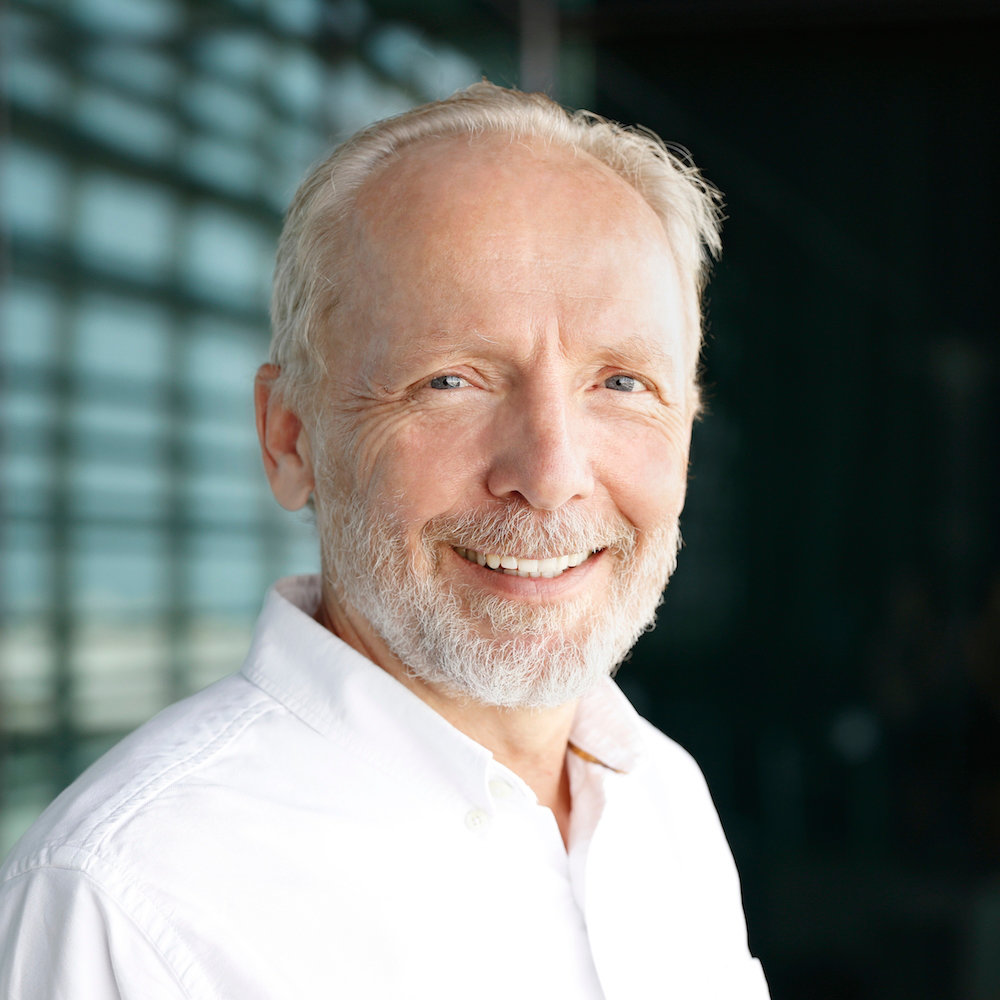
Volker Vahrenkamp, professor of geology at KAUST. (Supplied)
In a few places in the world, however, “modern” living stromatolites, “analogs for their ancient counterparts,” as Vahrenkamp puts it, continue to grow.
“Stromatolites are a vestige of the earliest life on Earth,” he said. “They ruled the Earth for an incredible period of time, about 3 billion years.
“Today they are part of the rock record in many parts of the world, but from these old rocks it is impossible to work out what type of microbes were involved and exactly how they did what they did.”
INNUMBERS
• 400 kilometers Distance of teepee fields from KAUST campus
• 3 billion Years when rock-like stromatolites ruled the Earth
• 120 Meters by which sea level was lower during last Ice Age
That’s why the discovery of a rare colony of living stromatolites, such as the one-off Sheybarah Island, is such a gift to geologists, biologists and environmental scientists.
“When you find a modern example such as this, the chances are that you might be able to better understand how the interaction of this microbial community led to the creation of stromatolites.”
Other examples are known, but they are almost always found in extreme environments, such as alkaline lakes and ultra-saline lagoons, where competitors cannot thrive.
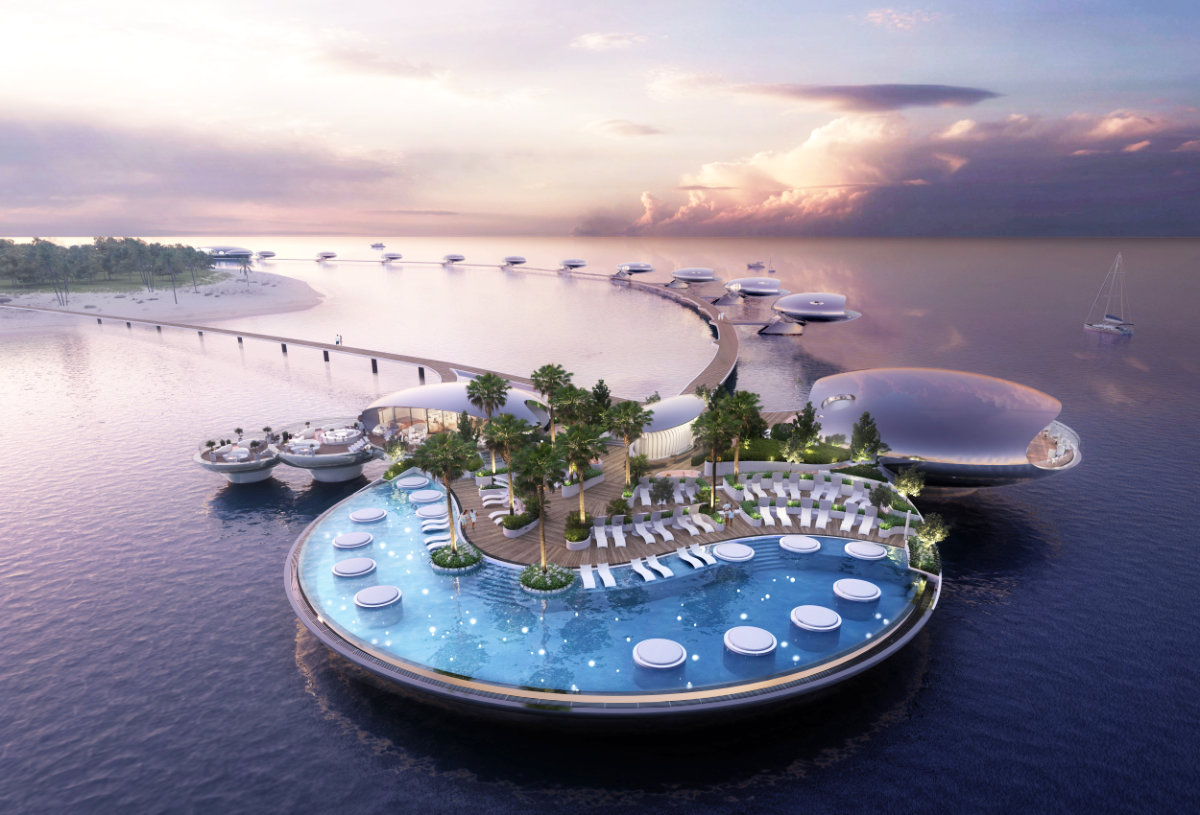
Sheybarah Island resort. (Red Sea Global photo)
One previous colony has been found in a more normal marine environment, in the Bahamas — which Vahrenkamp has visited, which is why he so readily recognized what he was walking on off Sheybarah Island — but this is the first example of living stromatolites discovered in Saudi waters.
It is not yet clear how old these stromatolites are, “but we can bracket it a little,” said Vahrenkamp.
“We know that during the last Ice Age, the sea level here was 120 meters lower, so they were not there 20,000 years ago. The area where they are was flooded about 8,000 years ago to a height about 2 meters above where it is now, and then the sea level receded again to where it is now about 2,000 years ago.”
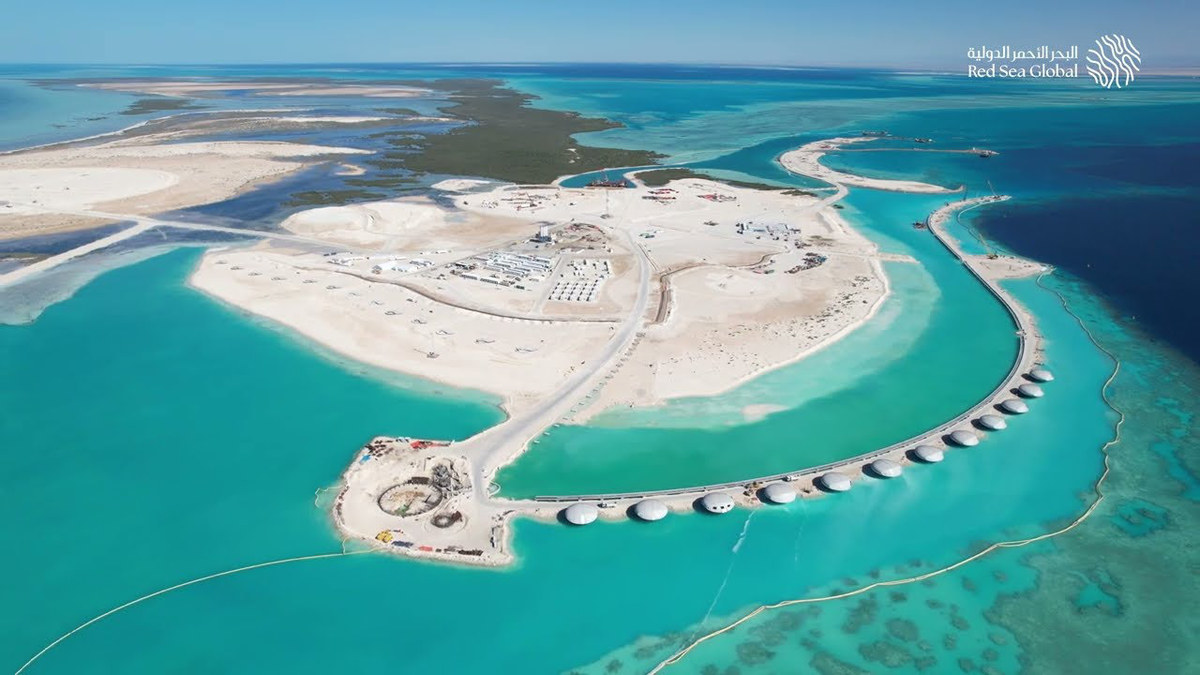
Sheybarah Island Resort. (Red Sea Global photo)
This does not mean the stromatolites are 2,000 years old. No one knows how long it takes the microbes to create their sedimentary layer cake and “no one has yet come up with a good way of dating the layers.
“The tide and the waves come along and throw in sand and material from the surrounding reefs and so all kinds of ages might be present. This makes it very difficult to precisely date the stromatolites and to estimate the growth rate.”
That is why Vahrenkamp and colleagues are now devising an experiment to recreate the natural environment of rising and falling tides and alternating sunlight and darkness in an aquarium, in an effort to grow stromatolites under controlled, easily observable conditions
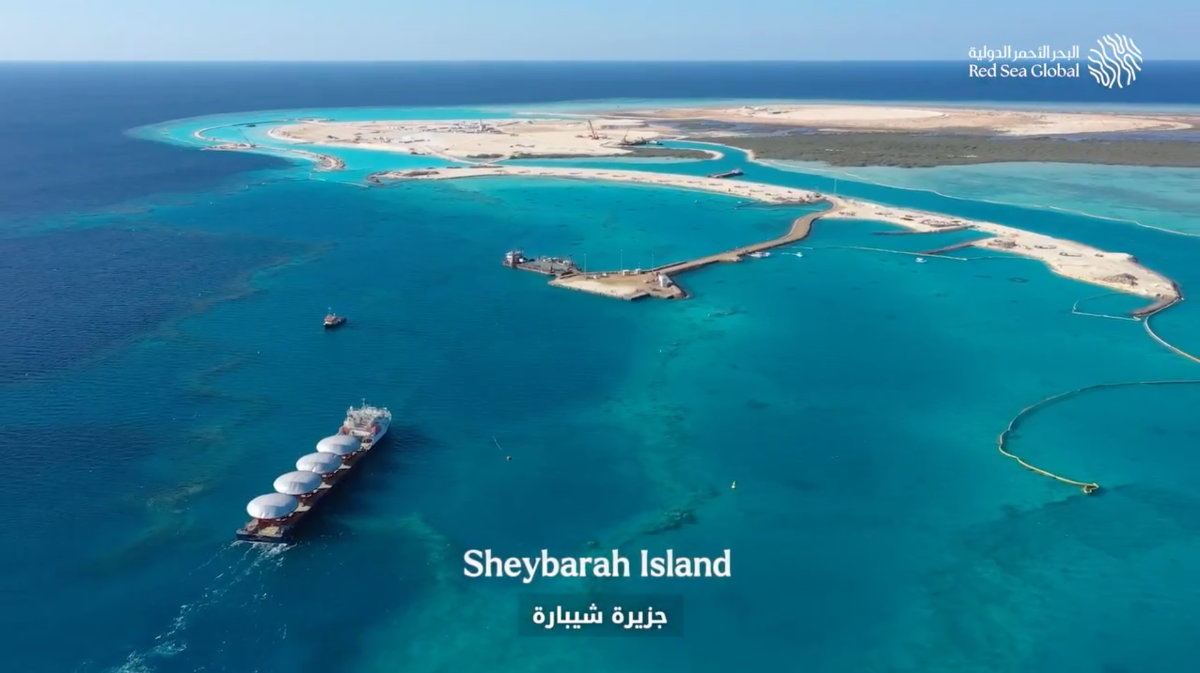
Sheybarah Island at an early stage of construction. (Red Sea Global photo)
Whether this will take weeks or many years, “we honestly don’t know.”
The team is also working on genetically sequencing many of the thousands of different types of microbial bacteria at work in the stromatolite factory.
“It’s a question of finding out ‘who’ is there, and who’s doing what,” said Vahrenkamp
“But then there is also the question of what kind of functionalities do these bacteria have, and whether we can we use it in other ways, perhaps in medical applications.
“Scientists are now looking intently at the microbial composition of our guts, to find out which microbes cause cancer, for example, and which prevent it. The microbacteria at work in stromatolites could contain functional secrets that we simply are not yet aware of.”
The discovery also has resonance for the environmental ambitions of the Saudi Green Initiative, announced by Crown Prince Mohammed bin Salman in 2021 and which aims, together with the Middle East Green Initiative, to combat climate change through regional cooperation.
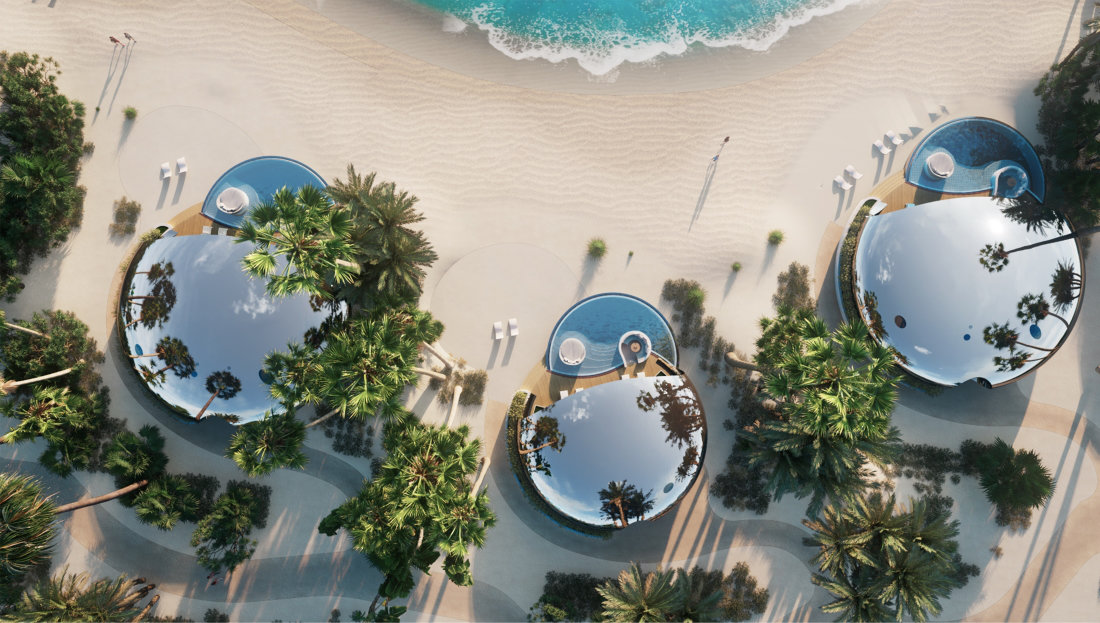
Sheybarah Island resort. (Red Sea Global photo)
As Vahrenkamp and his seven co-authors wrote in a paper published recently in Geology, the journal of the Geological Society of America, “the discovery of the Sheybarah stromatolite fields holds important implications, not only in the scientific perspective, but also in terms of ecosystem services and environmental heritage awareness in line with the ongoing projects for sustainability and ecotourism development promoted by Saudi Arabia.”
In the paper, the KAUST scientists thank Red Sea Global for its support in accessing the stromatolite site, which is currently being considered for designation as a conservation zone.
As for the tourists relaxing in the spectacular new overwater villas on Sheybarah Island’s crystal-clear Al-Wajh Lagoon, an extra attraction now is that a short stroll along the beach will take them back in time for a glimpse of life on Earth 3.5 billion years ago.


















